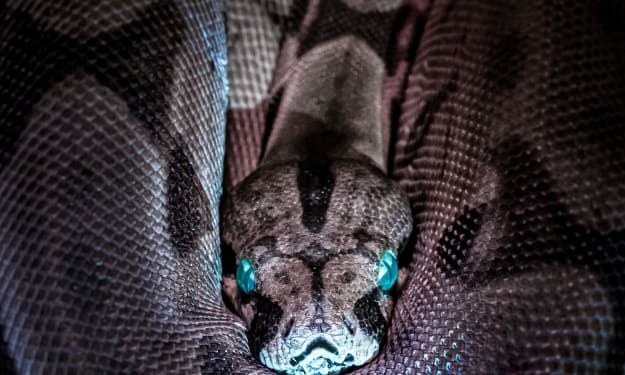Demystifying Cat Alzheimer's Disease
Cats suffer from this also

Does your elderly cat wander aimlessly, get lost in the house, or stare at the walls?
Has she stopped greeting you when you come home? Has she seemingly forgotten how to use the litter box? Is her wake/sleep cycle disrupted with her wandering through the house crying at night?
If so, she may be afflicted with the feline version of Alzheimer's disease, which manifests itself in cats very similarly to the way it affects humans.
Scientists at the Universities of Edinburgh, St. Andrews, Bristol and California have recently identified a protein in the cat brain which can build up in the nerve cells causing Alzheimer's and mental deterioration. As in humans with Alzheimer's disease, this protein creates 'tangles' inside nerve cells and inhibits messages from being processed by the brain appropriately. The presence of this protein in cats proves that they are also susceptible to this Alzheimer's.
Scientists have long suspected that cats were susceptible to dementia because previous research had identified thick, gritty plaques on the outside of elderly cats' brain cells which are similar to the ones found in humans. However, by discovering this second marker, this newly identified protein, the Edinburgh researchers are certain that cats can be stricken with a feline form of Alzheimer's.
Dr. Danielle Gunn-Moore, at the University of Edinburgh's Royal (Dick) School of Veterinary Studies, says, "This newly discovered protein is crucial to our understanding of the aging process in cats. We've known for a long time that cats develop dementia, but this study tells us that the cat's neural system is being compromised in a similar fashion to that we see in human Alzheimer's sufferers."
"The gritty plaques had only hinted that might be the case - now we know. The shorter lifespan of a cat, compared to humans, allows researchers to more rapidly assess the effects of diet, high blood pressure, and prescribed drugs on the course of the disease.
Cats suffering memory loss and dementia may exhibit one or more of the following symptoms:
- Confusion - staring at walls, getting lost in their homes
- Forgetfulness - not recognizing their owners, losing the ability to answer when you call their names.
- Changes in sleeping habits - sleep cycle can get disrupted with the cat staying up all night crying and wandering lost around the house.
- Loss of house training - losing the ability to either find the cat box, or losing the ability to know how to use it.
What You Can Do:
To reduce the risk of dementia in your cat, veterinarians who are expert in cat dementia recommend a good diet, frequent mental stimulation and companionship.
Talk with your vet about a healthy diet that meets your pet's nutritional needs. A diet high in antioxidants is ideal. However, keep in mind that the diet may need adjusting and change as your pet ages.
Encourage your older cat to play stalking games. Purchasing a small laser light for the cat to chase is a cheap and fun toy for both of you. Mental stimulation is vital.
Communicate! Talk to your older cat. This encourages the cat to stay connected mentally to you. It also strengthens your relationship with your cat and nurtures feelings of security in the cat. All vital for mental health.
This discovery has potential positive manifestations for humans also. Due to the shorter life span of cats, scientists are now able to observe and monitor more closely the progression of dementia which will give them clues about how the condition develops and progresses in humans. In addition, by carrying out post-mortem examinations of cats which have experienced natural deaths due to this disease, scientists may now be able to uncover vital clues about how this disease develops in humans which may eventually help scientists to come up with possible treatments for humans as well as felines.
In closing, Dr. Frank Gunn-Moore, at the School of Biology, University of St Andrews, says, "This work relied on a team effort with the different skills and expertise from our different institutions. It has given us an insight into the molecular changes that are occurring in the degenerating brain. From this knowledge we are now currently trying to develop new and novel treatments which will be able to help both cats and humans".
Good news for our feline friends and for us!
- Julie O'Hara 2023
Thank you for reading my poem or article. Please feel free to subscribe to see more content and if you are moved to, please consider tipping. In addition, my books can be found at https: Julie O'Hara Bookshop
About the Creator
Julie O'Hara - Author, Poet and Spiritual Warrior
Thank you for reading my work. Feel free to contact me with your thoughts or if you want to chat. [email protected]






Comments
There are no comments for this story
Be the first to respond and start the conversation.